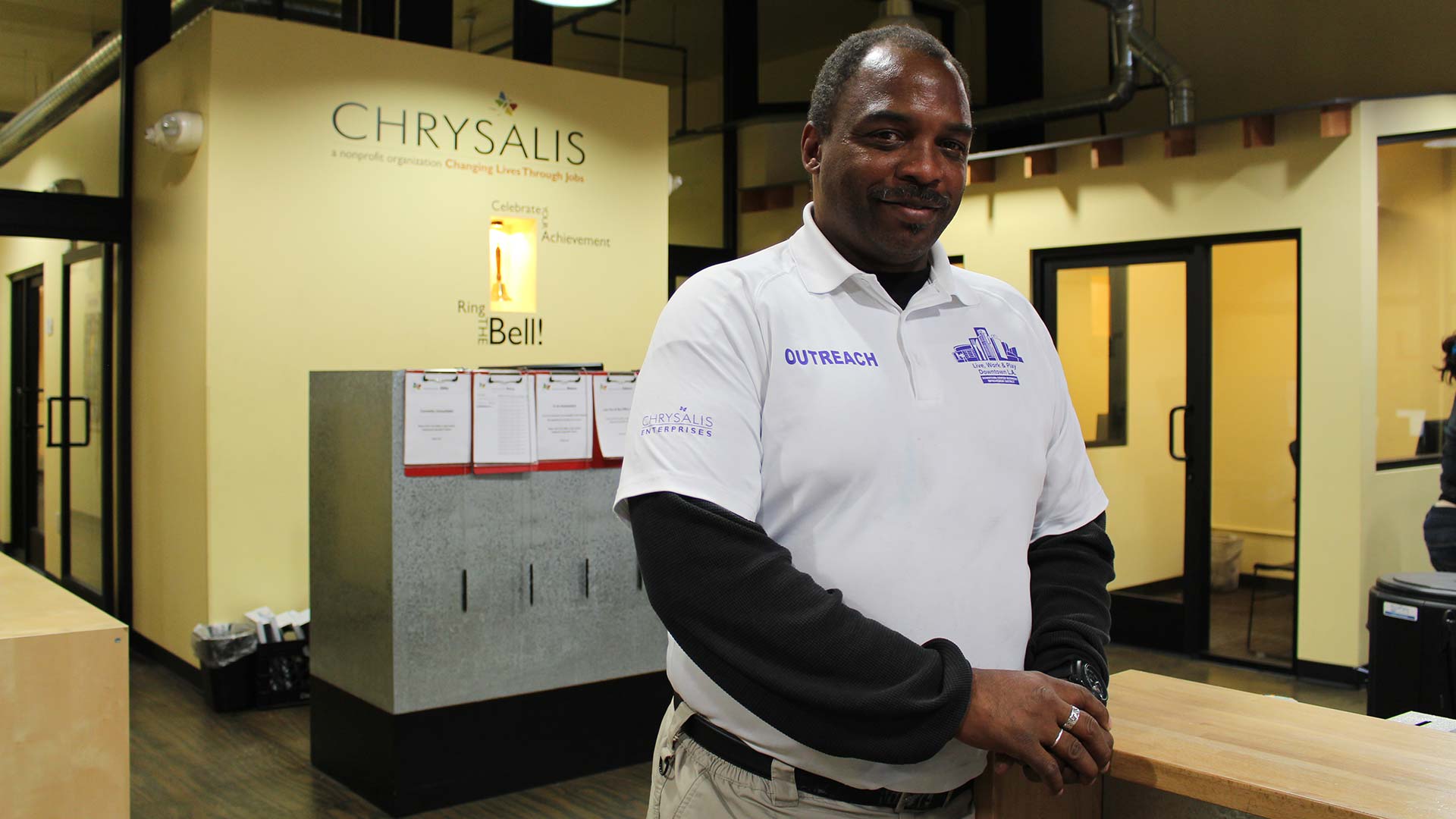To supplement our core program, Chrysalis offers transitional employment through our in-house, social enterprise business. Established in 1991, the social enterprise helps those who face the greatest barriers to employment, giving them the opportunity to gain real-world skills, build confidence, and develop the experience needed to find and retain long-term employment. Our street maintenance teams primarily work with business improvement districts throughout Los Angeles County to provide sweeping, trash abatement, and other services. These teams are just the tipping point. Chrysalis also cultivates relationships with many types of businesses, in search of employees – think of a staffing business.
Chrysalis has been working with the Downtown Center Business Improvement District (DCBID) for 18 years, during which more than 1,600 Chrysalis clients worked with the BID on our street maintenance team. So when the BID set out to start an Outreach Team to serve individuals experiencing homelessness in the DTLA area, Chrysalis was tapped to help find the best people for the job. In early January, Los Angeles Times reporter, Doug Smith met up with Chrysalis client, John Johnson and Outreach Team to see how the group helps people experiencing homelessness in DTLA.

He sat on a pillow atop a plastic bucket, crocheting. A man and woman approached. They were agents of the Downtown Center Business Improvement District. He would be their first contact in Pershing Square, which by midmorning was already filling with homeless people, or those who appeared to be.
The man’s face brightened. “Tomorrow’s my birthday,” he announced. “I’ll be 57.” After exchanging small talk, the team moved on, leaving the man to spend his day on the sidewalk across from the Biltmore Hotel. They weren’t there to roust him. Though bicyclists in purple shirts may have become the public face of downtown business owners’ campaign to keep crime, filth and vagrancy at bay, a less noticeable initiative is also at work.
Every morning, John Johnson and Sydney Sheiner set out to chat up the people who frequent places such as the Central Library’s Maguire Gardens, the 4th Street overpass and Pershing Square. They make up one of the two homeless outreach teams funded by the downtown business improvement district. Their mission is to contact, interview and assist the roughly 130 homeless people living at any time in the west side of downtown, from 1st Street to Olympic Boulevard. They chase no one away but encourage everyone they engage with to start on the path to permanent housing.
Richard Bailey, the man sitting on the bucket, was already a success story. When Skid Row Housing Trust opened the Crest Apartments in Van Nuys last summer, Bailey got a home there, his first in 28 years. But he’s still a regular in his old haunt, where many of the seemingly homeless people actually have a roof somewhere, either in a shelter or a nearby single-roomoccupancy apartment. Bailey takes the Metro’s Red Line to Pershing Square.
It’s where he’s comfortable, Johnson said. He could relate. “It took me a while to get used to the quiet of being inside,” he said. “When you’re out here on the streets for a long time, you get used to all those certain noises.”
Johnson and Sheiner represent a collaboration of the private and nonprofit sectors in one facet of the city’s response to homelessness. The business improvement district, a private entity financed by property owner assessments in a 65block area, pays their salaries through contracts with two social services agencies. Sheiner, 25, is an outreach worker for PATH, or People Assisting the Homeless, a Los Angeles-based organization that provides services, including street outreach, shelter and housing construction.
Johnson is a transitional employee of Chrysalis, a skid row program that provides job preparation and temporary work experience. Unlike Sheiner, who has a college degree in social work, Johnson, 51, is an alumnus of the streets. With a track record of addiction, incarceration and 24 years of homelessness, Johnson couldn’t find work even after a court-ordered program gave him a year of sobriety and training in telecommunications. Chrysalis put him to work.
